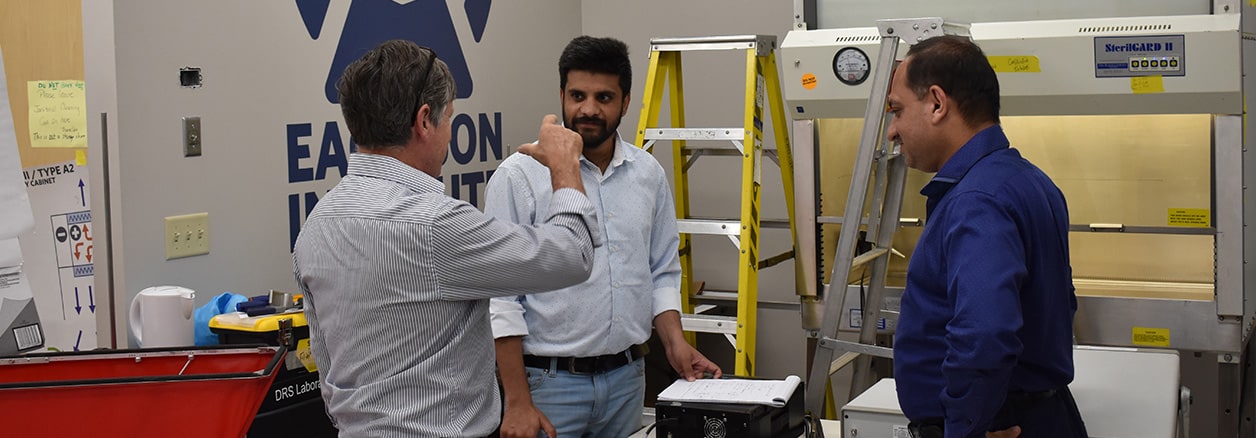Phase I
Phase II
Phase III
|
Global Biosafety Cabinet Certification Program
Email eagleson@eagleson.org for next scheduled class or to inquire about an on-site program.
The Eagleson Institute’s Global Biosafety Cabinet Certification Program consists of two phases with an additional (optional) third component. Parts I and II take place twice a year at the Eagleson Institute and can also be offered at other training facilities that have the necessary equipment.
Phase I: Two weeks training at Eagleson Institute on certifying Class II Type A BSCs according to NSF 49 and EN 12469
Part 1: Maine Week Topics include:
- Safety Cabinet Technology
- Introduction to Certification
- ASHRAE
- HVAC Systems and Lab Design
- (Optional) Beginner Applied Practice Workshop. A week of hands-on practice certifying biosafety cabinets.
Phase II: Two weeks advanced training at Eagleson Institute, including troubleshooting, decontamination, repair, and certification of Class II Type B BSCs
Part 2: Advanced Certification This second phase would ideally occur about a year after part 1. The NSF exam is proctored at our facility during the weekend immediately following the course. Registration and payment for the exam is done through NSF.
- (Optional) Advanced Applied Practice Workshop. A week of extra hands-on practice certifying biosafety cabinets to prepare the student for taking the NSF exam.
Please note: The Applied Practice Workshop is a small group instruction taught by one of our senior instructors. It is a weeklong personalized Hands-On training workshop and is optional, although recommended for students from out of the country or people who do not have the ability to practice on BSC equipment regularly.
Phase III: In-house mentoring and evaluation by an Eagleson Institute instructor (optional)
Participants learn how to do the following:
- Explain how BSCs are constructed and function
- Describe BSC types and exhaust requirements
- Use BSCs effectively
- Follow NSF 49 and EN 12469 test procedures for BSC certification
- Develop a testing grid for BSCs
- Perform inflow and downflow airflow tests
- Evaluate BSC airflow using smoke pattern tests
- Conduct a site assessment
- Perform HEPA leak testing
- Determine when and how to decontaminate a BSC
- Troubleshoot BSCs
- Balance BSC airflows
- Repair leaks in HEPA filters
- Change HEPA filters
- Teach others to use BSCs effectively
Who Is This Class For?
This class is for BSC certifiers and biomedical engineers who need to learn the details of certification according to NSF49 and/or EN 12469.
Email eagleson@eagleson.org for details.
Email eagleson@eagleson.org for details.
